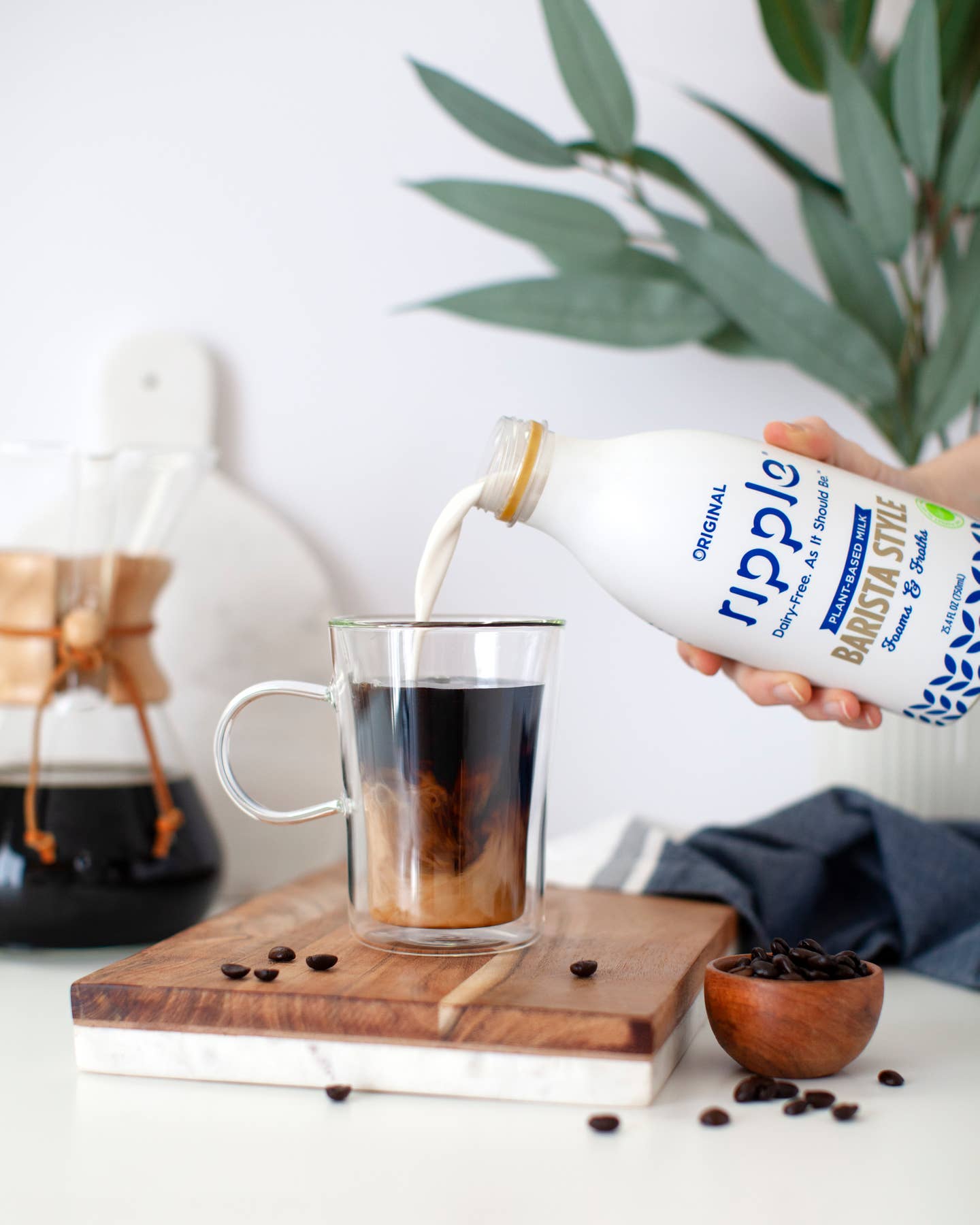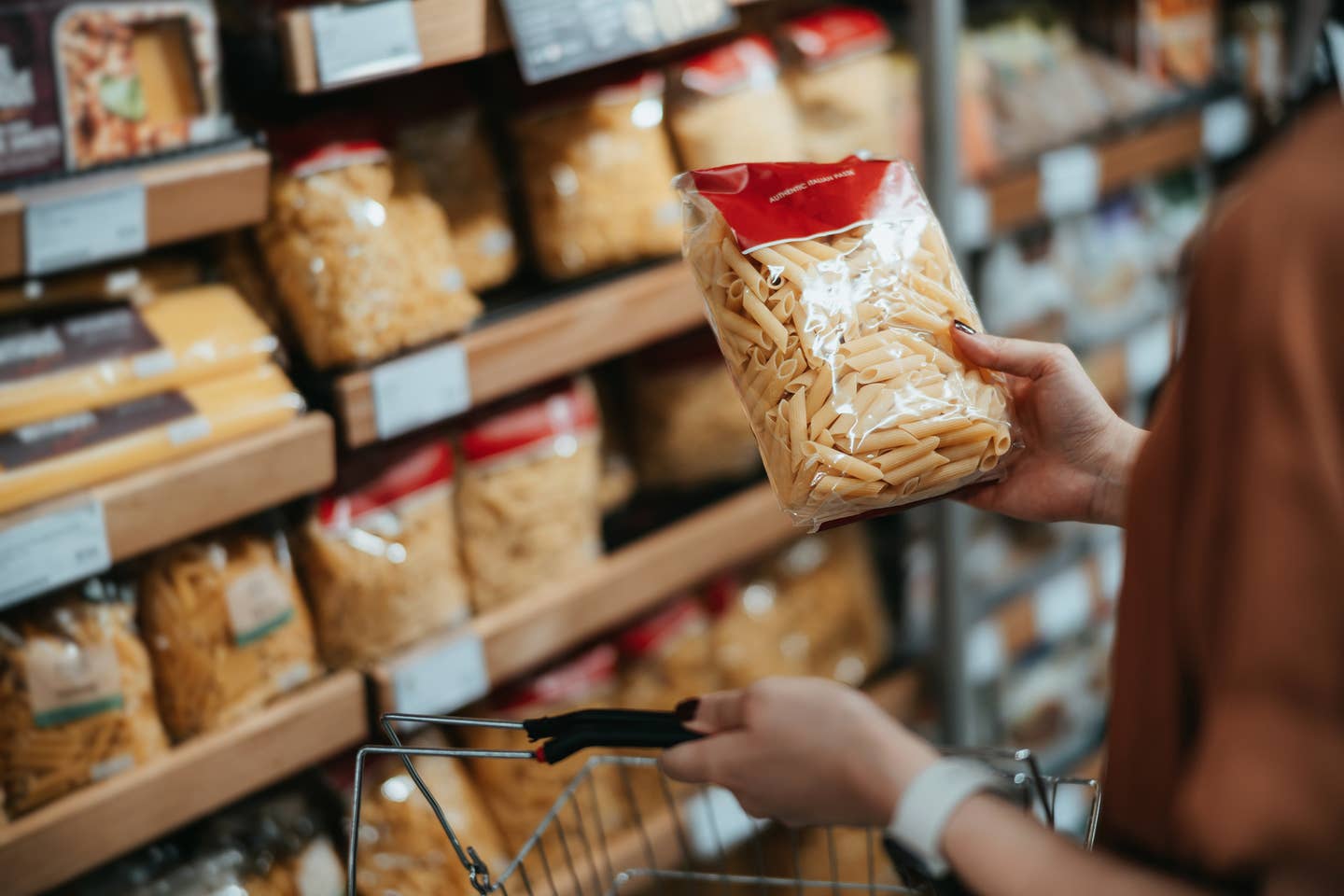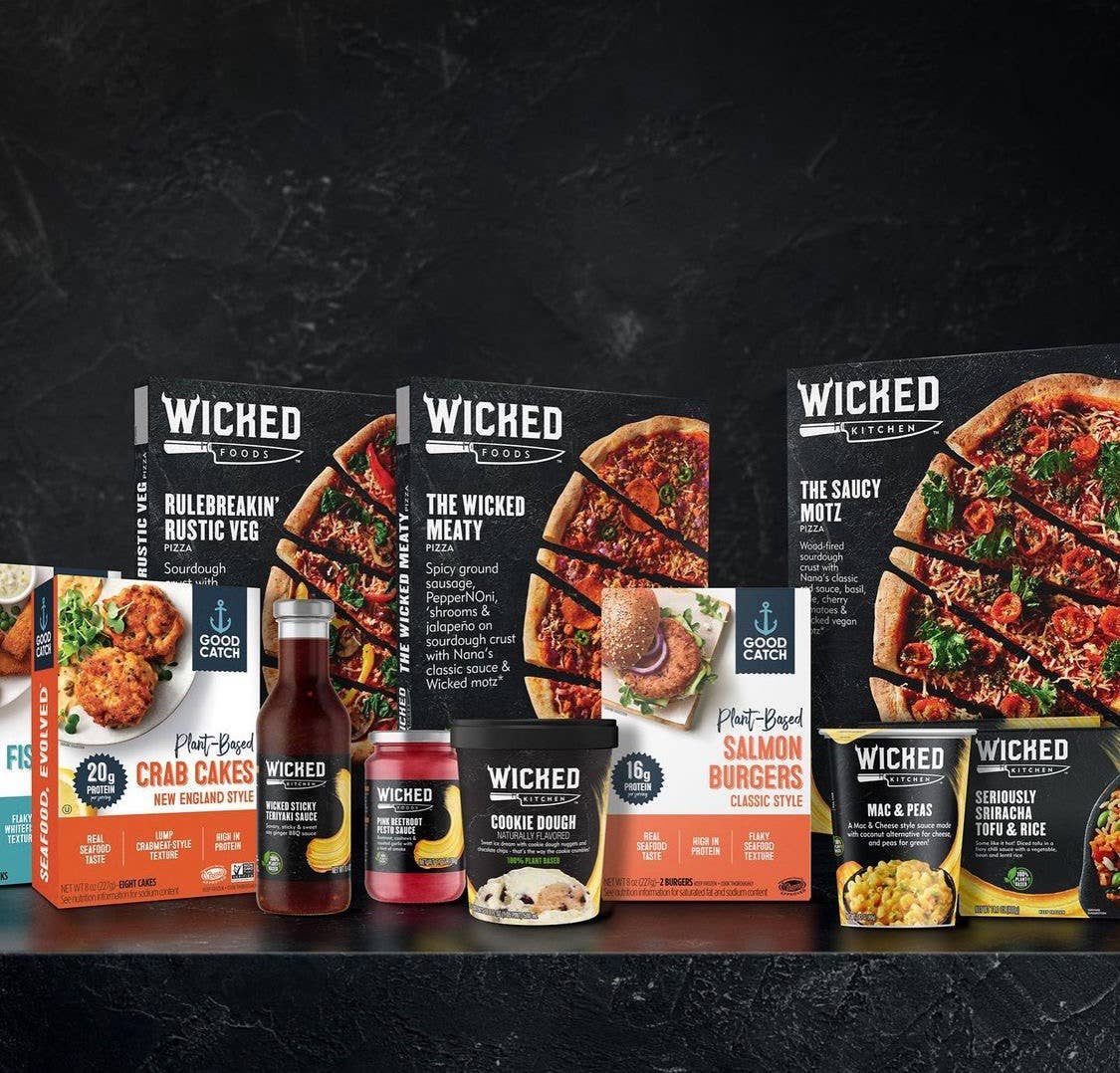
Plant-Based Milk Delivered: Ripple Foods Launches Online Store
As more people order food—and everything else they possibly can—from the safety of their homes, businesses are swiftly adapting to meet the new world of online-first consumerism.
Perhaps it comes as no surprise that plant-based milks, once reserved for purchase in the store, are becoming more shoppable online. Ripple Foods, known for their high protein pea-based plant milk, just launched a digital storefront, making it easier than ever to get plant-milk direct to your door.
“After receiving hundreds of requests from consumers for online ordering, [we are] altering our supply chain to ensure that families, especially those with nut and dairy allergies, are able to get the food they need during this pandemic,” a spokesperson for Ripple Foods told The Beet. “During a time when a trip to the grocery store can be scary, Ripple wants to keep families well-stocked with healthy, allergy-free products.” On their online shop, you can purchase a variety of Ripple products including Ripple Milk, Half & Half, shelf-stable Kids Packs and Protein Shakes, and Protein Powder. Orders are processed within 24 hours and arrive in two to three business days.
Why pea milk?
With the abundance of vegan milk choices, why would one opt for pea based? It is lactose-free, soy-free, gluten-free, and many producers, like Ripple, are dedicated to using non-GMO ingredients. Pea milk also provides a hefty source of protein—so the argument that you can’t get adequate amounts of protein from milk doesn't hold weight. Ripple, for example, has 8 grams of protein per serving (about double the amount in oat milk) and contains half the sugar of dairy milk, and even more calcium. And of course, importantly, pea milk is rich in taste and satisfies the milk-like creaminess some consumers desire. (Check out this full review of pea milk put to The Beet’s taste test.)
When it comes to the environment, pea milk has a comparatively low environmental impact. Yellow peas—the type that pea milk is made from, which are a little larger with a more mild taste than green peas—naturally grow in areas that don’t require the copious amounts of water that almonds or cashews (or for that matter cattle), require. Producing peas requires 25 times less water than dairy milk and significantly less water than almond milk.
Online shopping; direct-to-consumer trend
The current pandemic has altered the way we consume, thus, the way businesses conduct commerce. We are now seeing more brands selling directly to you, the consumer. “Direct-to-Consumer” (or DTC) simply means no middle man; so you buy directly from the brand, rather than the brand selling wholesale to a retailer, like Whole Foods for example, and you then purchasing from Whole Foods.
If anything, the pandemic has given brands the nudge to sell directly to consumers. Time will tell if new business models, like DTC, will be sustained when life goes back to normal. For now, companies like Ripple that are able to act quickly to alter their supply chains to sell direct have a leg up.
Other plant-based companies are moving to—or adding— their own DTC options. For example, you might be used to buying Miyoko Creamery off the shelf, but now they're making it easy to buy online and adding new products like wine and cheese pairing bundles for $42, delivered straight to your door. Elmhurst 1925, who famously converted their dairy milk company to make nut milks in 2017, sells only shelf-stable products all available on their online store. Adult beverages are getting in on the direct-to-consumer action too. San Diego-based JuneShine, hard kombucha, launched an online store and delivers throughout California. Plus, they’re donating $1 from every order to the US Bartenders Guild Emergency Assistance Program to help service industry workers.
Plant-milk’s ‘Holy Cow’ moment is getting even more "Holy"
Plant-based milk products continue to top the charts as the largest plant-based food category. According to a SPINS report, Plant-based milk as a category accounts for 40 percent of the total plant-based food market. Still, the largest plant-based milk purchased in the US is almond milk, but we’ve seen other alternatives, like oat, rapidly bursting onto the scene; oat milk sales surged an impressive 686 percent over the past year. Pea milk is still one of the relatively newer players on the block, but considering its close-to-milk nutritional profile (be it with some fortification), it might be the next to ride the plant-milk tidal wave.
The shelf stability of plant milk makes them a preferable option, especially in an uncertain economic climate. Contrary to most plant milk products, dairy milk is highly perishable with a short shelf life. Also, because milk is produced from live animals, farmers can't simply turn off production. Dairy farmers are struggling, and forced to dump millions of gallons of milk.
For now, Ripple signals no sign of their growth slowing down. It raised $65 million in a Series C round in 2018 (led by Euclidean Capital with participation from Goldman Sachs and Fall Line Capital), a war chest that has enabled it to scale, and pivot as needed. This latest direct-to-consumer push is a prime example of a company able to pivot.
More From The Beet






